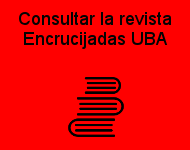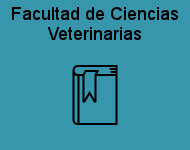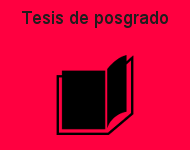3 documentos corresponden a la consulta.
Palabras contadas: polypeptide: 9, intestinal: 12, vasoactive: 15
Hauk, V. - Calafat, M. - Larocca, L. - Fraccaroli, L. - Grasso, E. - Ramhorst, R. - Leirós, C.P.
Clin. Exp. Immunol. 2011;166(3):309-316
2011
Temas: Acinar cell apoptosis and clearance - Sjögren's syndrome - VIP - cyclic AMP - cyclic AMP dependent protein kinase - tumor necrosis factor alpha - vasoactive intestinal polypeptide - vasoactive intestinal polypeptide receptor 1 - acinar cell - animal cell
Descripción: Sjögren's syndrome (SS) is a chronic autoimmune disease characterized by a progressive oral and ocular dryness that correlates poorly with the autoimmune damage of the glands. It has been proposed that a loss of homeostatic equilibrium in the glands is partly responsible for salivary dysfunction with acinar cells involved actively in the pathogenesis of SS. The non-obese diabetic (NOD) mouse model of Sjögren's syndrome develops secretory dysfunction and early loss of glandular homeostatic mechanisms, with mild infiltration of the glands. Based on the vasodilator, prosecretory and trophic effects of the vasoactive intestinal peptide (VIP) on acini as well as its anti-inflammatory properties we hypothesized that the local expression of VIP/vasoactive intestinal peptide receptor (VPAC) system in salivary glands could have a role in acinar cell apoptosis and macrophage function thus influencing gland homeostasis. Here we show a progressive decline of VIP expression in submandibular glands of NOD mice with no changes in VPAC receptor expression compared with normal mice. The deep loss of endogenous VIP was associated with a loss of acinar cells through apoptotic mechanisms that could be induced further by tumour necrosis factor (TNF)-α and reversed by VIP through a cyclic adenosine-5'-monophosphate (cAMP)/protein kinase A (PKA)-mediated pathway. The clearance of apoptotic acinar cells by macrophages was impaired for NOD macrophages but a shift from inflammatory to regulatory phenotype was induced in macrophages during phagocytosis of apoptotic acinar cells. These results support that the decline in endogenous VIP/VPAC local levels might influence the survival/apoptosis intracellular set point in NOD acinar cells and their clearance, thus contributing to gland homeostasis loss. © 2011 The Authors. Clinical and Experimental Immunology © 2011 British Society for Immunology.
...ver más Tipo de documento: info:ar-repo/semantics/artículo
Rosignoli, F. - Roca, V. - Meiss, R. - Leceta, J. - Gomariz, R.P. - Leirós, C.P.
Clin. Exp. Immunol. 2005;142(3):411-418
2005
Temas: Autoimmune response - Nitric oxide signalling - NOD mice - Sialadenitis - Sjögren's syndrome - cyclic AMP - cyclic GMP - neurotransmitter - nitric oxide - nitric oxide synthase
Descripción: The spontaneous non-obese diabetic (NOD) mouse model of Sjögren's syndrome provides a valuable tool to study the onset and progression of both the autoimmune response and secretory dysfunction. Our purpose was to analyse the temporal decline of salivary secretion in NOD mice in relation to the autoimmune response and alterations in various signalling pathways involved in saliva secretion within each salivary gland. A progressive loss of nitric oxide synthase activity in submandibular and parotid glands started at 12 weeks of age and paralleled the decline in salivary secretion. This defect was associated with a lower response to vasoactive intestinal peptide in salivary flow rate, cAMP and nitric oxide/cGMP production. No signs of mononuclear infiltrates or local cytokine production were detectable in salivary glands in the time period studied (10-16 weeks of age). Our data support a disease model for sialadenitis in NOD mice in which the early stages are characterized by defective neurotransmitter-mediated signalling in major salivary glands that precedes the autoimmune response. © 2005 British Society for Immunology.
...ver más Tipo de documento: info:ar-repo/semantics/artículo
Roca, V. - Larocca, L. - Calafat, M. - Aisemberg, J. - Meiss, R. - Franchi, A.M. - Leirós, C.P.
Reproduction 2006;132(6):931-938
2006
Temas: cytokine - gamma interferon - interleukin 10 - interleukin 12 - neuropeptide - nitric oxide - nitric oxide synthase - progesterone - prostaglandin - prostaglandin synthase
Descripción: A functional interaction between progesterone, Th2 cytokines and a suitable balance between nitric oxide and prostaglandins in the uterus is considered to have a major role in the success of embryo implantation and pregnancy. Non-obese diabetic (NOD) mice offer a suitable model to study the modulatory role of Th1 cytokines on uterus signalling and function, since at the prediabetic stage they develop a spontaneous Th1 autoimmune response against exocrine glands similar to Sjögren's syndrome. Vasoactive intestinal peptide (VIP) is a vasoactive neuro- and immunopeptide that promotes Th2 profiles and contributes to the smooth muscle relaxation and vasodilation. The aim of the present study was to investigate the activities of nitric oxide synthase and cyclo-oxygenase and the effect of VIP in the uterus of NOD mice with an emerging Th1 cytokine response. We present evidence of a reduced basal and VIP-stimulated activity of both enzymes in the uterus of NOD mice compared with normal BALB/c mice in proestrus. An altered functional interaction between both enzymes is also present in NOD mice at the time when increased levels of serum interleukin (IL)-12 and tumour necrosis factor-α but not interferon (IFN)-γ or IL-10 were detected. We conclude that signalling alterations in uteri of NOD mice are simultaneous to the onset of a systemic Th1 cytokine response. © 2006 Society for Reproduction and Fertility.
...ver más Tipo de documento: info:ar-repo/semantics/artículo






























